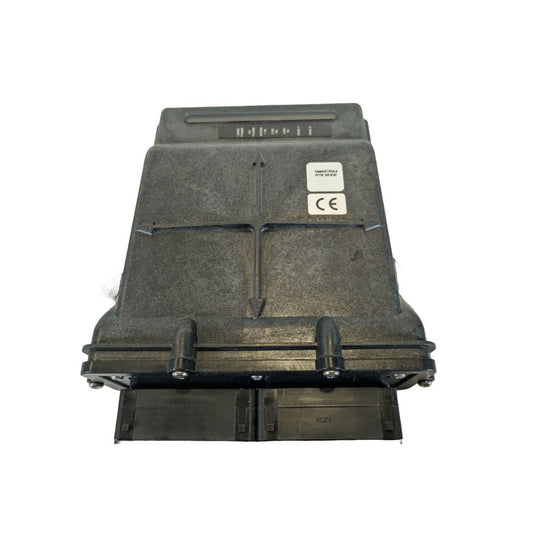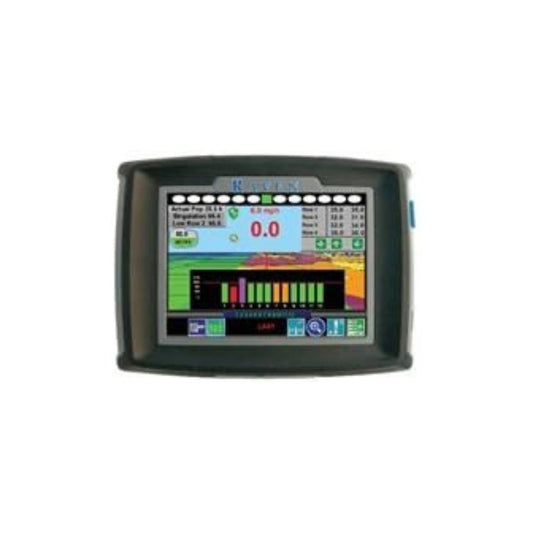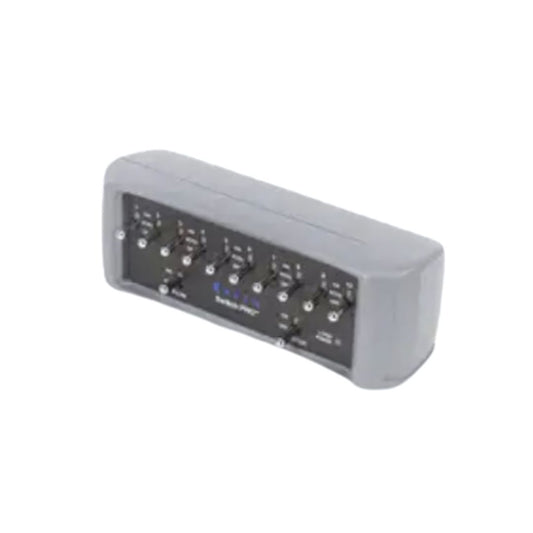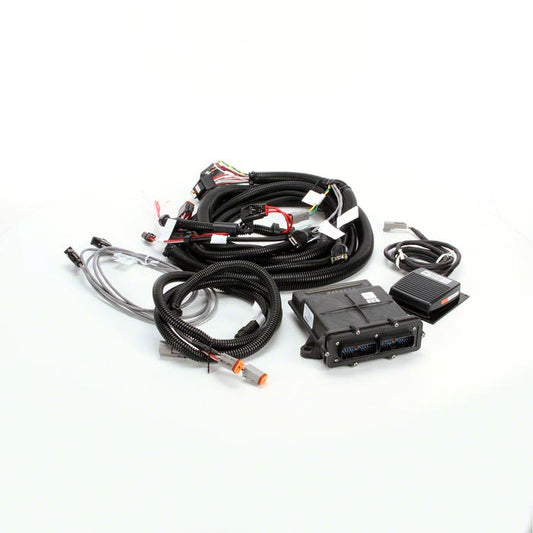
Smart agriculture integrates state-of-the-art technologies to change traditional farming practices through three major technological waves. Modern farms employ precision tools, cloud-based solutions, and AI-powered systems to optimize operations and resource management. Real-time analytics from IoT sensors, drone surveillance, and automated systems provide farmers with data-driven understandings for improved decision-making. This technological evolution extends to livestock management through digital monitoring tools and smart tags. The implementation of these solutions has demonstrated significant benefits, including up to 30% water savings and reduced chemical usage. Exploring these advancements reveals the future environment of sustainable and efficient farming.
Listen to the Article Summary
Key Takeaways
- AI and machine learning analyze agricultural data to optimize resource allocation and provide accurate forecasts for crop management decisions.
- Smart irrigation systems and soil sensors reduce water consumption by up to 30% while maintaining optimal crop growth conditions.
- Digital livestock monitoring tools track animal health, behavior, and productivity to enhance breeding efficiency and early disease detection.
- Integration of drone surveillance and computer vision enables real-time detection of plant stress and pest infestations.
- Precision farming technologies minimize chemical usage through targeted application based on specific crop needs and field conditions.
The Evolution of Smart Agriculture
Three major technological waves have changed traditional farming into today's smart agriculture environment. The first wave introduced precision farming tools, enhancing field-level management through data collection.
The second brought cloud-based solutions, enabling farmers to access real-time information and make data-driven decisions.
The current wave integrates artificial intelligence and IoT devices, altering farming operations through predictive analytics and automated systems. Drones monitor crop health, while smart sensors track soil conditions and resource usage.
This evolution has made farming more efficient and sustainable, with software solutions customized for specific agricultural needs.
These technological advancements address critical challenges in food production, resource management, and environmental sustainability, while providing farmers with tools to increase yields and maintain transparency in their operations.
Data-Driven Farming Solutions
Data-driven farming solutions represent a fundamental shift in agricultural management, integrating real-time analytics, sensor technology, and predictive modeling to optimize farm operations. Through advanced software platforms, farmers can now access extensive data on soil health, weather patterns, and crop performance to make informed decisions.
Modern smart farming software combines data from multiple sources, including drone surveillance, soil sensors, and automated irrigation systems, to create actionable perspectives. These solutions enable precise resource allocation, disease prevention, and yield optimization.
Web-based and cloud-based platforms offer farmers real-time monitoring capabilities, while AI-powered analytics help predict potential issues before they impact production. This technology-driven approach not only improves operational efficiency but also promotes sustainable farming practices, ensuring better crop quality and increased profitability for agricultural businesses.
AI and Machine Learning Applications
Artificial Intelligence and Machine Learning are reshaping smart farming through sophisticated algorithms that analyze vast amounts of agricultural data. These technologies enable farmers to make data-driven decisions, optimize resource allocation, and predict potential challenges before they impact crop yields or livestock health.
- Predictive analytics forecast crop yields and disease outbreaks with remarkable accuracy.
- Computer vision systems detect plant stress and pest infestations in real-time.
- Machine learning algorithms optimize irrigation schedules based on soil moisture data.
- AI-powered weather forecasting helps farmers plan operations more effectively.
The integration of AI and ML into farm management software creates a powerful toolkit for agricultural professionals, enhancing productivity while reducing waste and environmental impact.
These technologies democratize access to advanced farming techniques, enabling both small and large-scale operations to achieve sustainable growth.
Digital Tools for Livestock Management
Modern livestock management has undergone a dramatic change through the integration of digital monitoring tools and smart technologies. These solutions enable farmers to track individual animal health, behavior patterns, and productivity metrics in real-time.
Advanced monitoring systems, like those offered by Boumatic LLC, provide extensive data on milk production, feeding patterns, and crucial signs. Farmers can detect health issues early, optimize breeding cycles, and maintain detailed electronic records for regulatory compliance.
Smart ear tags and collar sensors continuously transmit important information about movement patterns and body temperature.
These digital tools integrate with farm management software platforms, enabling data-driven decisions that improve herd health, reduce operational costs, and bolster overall farm efficiency. The result is more sustainable livestock operations with improved animal welfare and production outcomes.
Sustainable Farming Through Technology
The integration of smart technology in agriculture extends beyond livestock management to create environmentally conscious farming practices. Advanced software solutions now enable farmers to optimize resource utilization while maintaining sustainable production methods through data-driven decision making.
- Smart irrigation systems reduce water consumption by up to 30% through real-time soil moisture monitoring.
- Precision farming technology minimizes chemical usage by targeting specific crop needs.
- Drone surveillance helps detect crop diseases early, reducing pesticide requirements.
- IoT sensors monitor environmental conditions to optimize energy usage in greenhouses.
These technological innovations support farmers in meeting growing sustainability demands while maintaining profitable operations.
Market Trends and Growth Prospects
Global market projections indicate substantial growth potential for smart farming technologies, with the sector expected to reach significant expansion by 2028. Key drivers include increasing demand for sustainable agricultural practices and the integration of advanced technologies like AI and IoT in farming operations.
Market trends reveal a strong shift toward cloud-based solutions and precision farming applications, enabling farmers to optimize resource utilization and improve crop yields.
The adoption of data analytics for decision-making continues to rise, while drone technology and automated systems streamline farm operations.
Growth prospects are particularly promising in emerging markets, where traditional farming practices are gradually giving way to smart solutions.
Despite challenges like regulatory constraints, the sector's evolution is driven by the need for food security, environmental sustainability, and increased operational efficiency.
Precision Agriculture Best Practices
Precision agriculture practices hinge on data-driven decision-making and systematic implementation of advanced monitoring technologies.
Modern farming operations employ smart software solutions to optimize resource allocation, improve crop yields, and maintain sustainable practices through real-time monitoring and data analytics.
- Deploy soil sensors strategically across fields to monitor moisture levels, nutrient content, and pH balance for targeted fertilization.
- Apply drone technology for regular aerial surveillance to detect crop stress, disease outbreaks, and irrigation issues early.
- Implement automated irrigation systems connected to weather forecasting data to optimize water usage.
- Integrate field mapping software with GPS-guided equipment to guarantee precise application of inputs and reduce waste.
These practices enable farmers to make informed decisions while minimizing environmental impact and maximizing operational efficiency through technology-driven solutions.
Conclusion
Picture a farm where tractors drive themselves through golden wheat fields while farmers check crop health from their smartphones - that's smart farming in action! Just like having a super-smart helper in the fields, modern farming technology uses computers, sensors, and artificial intelligence to grow food better and waste less. These amazing tools help farmers know exactly when to water their crops, how much fertilizer to use, and even predict the perfect harvest time.
As farming becomes more high-tech, it's crucial to have experts who can help set up and maintain this advanced equipment. That's where Ed Gibeau comes in - with 35 years of agricultural experience, he's seen it all and solved it all. Working at Tru-Kare Tank & Meter Service in Lacombe, Ed specializes in everything from anhydrous ammonia equipment to the latest GPS steering systems. He's your go-to expert for Raven products, Outback systems, and the new CHC Navigation Autosteer Systems.
Whether you're dealing with tricky precision farming equipment or need help with fertilizer systems, Ed Gibeau can usually solve your problem with just a phone call or quick service visit. The future of farming is here, and having a trusted expert like Ed on your side makes all the difference in keeping your smart farm running smoothly.
Smart farming isn't just about fancy gadgets - it's about feeding our growing world more efficiently while protecting our precious farmland for future generations.






